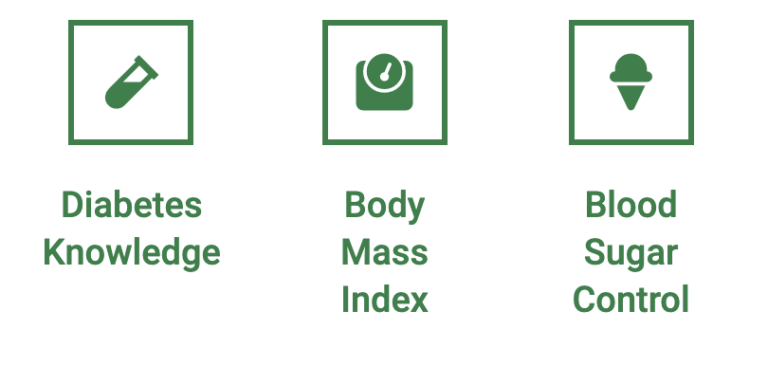Integrated Behavioral Diabetes Management:
Healthy lifestyle training for individuals with diabetes and mental health challenges.
Diabetes rates among persons with mental health challenges are two to three times higher than the general population. Persons with mental health challenges are also less likely to receive screening and monitoring for diabetes than the general population, despite the increased risk associated with antipsychotic medication and lifestyle factors in this population. To address this need, a 16-session group education and problem-solving intervention was developed specifically for individuals with mental health challenges and diabetes. Participation in the group intervention was associated with better blood sugar control, lower body mass index, and greater diabetes knowledge/self-care at the end of treatment. However, engagement rates differed among participants, and 50% of the sample did not attend a single group session.
PROJECT STATUS

Schnitzer K, Cather C, Zvonar V, Dechert A, Plummer R, Lowman K, Pachas G, Potter K, Evins AE. Patient experience and predictors of improvement in a group behavioral and educational intervention for individuals with diabetes and serious mental illness (SMI), a mixed methods case study. JMIR Preprints. 2020.
AIMS
In this study, we set out to understand the factors that influenced engagement. Our main aims were to: 1) identify predictors of improvement in blood sugar control and body mass index and 2) characterize barriers and facilitators of participation in the group intervention.
METHODS
Thirty-three people with mental health challenges and diabetes who consented to participate in the group intervention were interviewed for this study. Relationships between attendance, improvement in diabetes knowledge, improvement in diabetes self-care, and the primary outcomes (blood sugar control and body mass index) were examined.
Additionally, a semi-structured interview was conducted with both persons who attended at least one group and persons who did not attend any groups to identify motivations for attending/reasons for not attending, as well as parts of the intervention that were the most helpful. Interviews were audiotaped, transcribed, and coded for themes across participants.
Primary Outcomes to be Measured:

RESULTS
Improved diabetes knowledge was related to reductions in body mass index, although change in diabetes knowledge was not related to improved blood sugar control. Participants who attended at least one group reported learning about how to manage their diabetes and maintain their health. The primary reasons cited for non-attendance were time and transportation.
If I’m going to eat cake, chocolate cake, my sugar level’s going to go up, who knows up to how much. I may get dizzy, but if I eat the right things, the ones the group taught me, I can’t go wrong.
[Participant quote]
Additionally, they described benefiting from the accountability of goal setting and group support during the intervention and reported improved confidence in their ability to manage their diabetes.
The very existence of the group certainly helps. The weekly, or every other weekly, depending on when I get in here, accountability to [group leaders] and the other members of the group.
[Participant quote]
I mean, it was nice, and then I also met more people, and you got more input, what problems they have, or they would mention something that was problematic with you where you hadn’t really realized that you had that problem… but you never took much notice of it. And then they say, “Hey, I’ve got the same problem, too.” So you hear from more people, and you get more input, so that’s good.
[Participant quote]
Everyone does bring something to the group who shows up and talks candidly. And say “Oh, yeah. You’ve discovered that too,” or “I’ve done that, too,” or “Oh, this was a hard week, weather-wise.'”
[Participant quote]
This study showed a relationship between increased diabetes knowledge and reduced body mass index, but not blood sugar control, among a group of participants whose blood sugar control improved over the 16-week group intervention.
Participants valued the group support, behavioral goal setting, and reported improved confidence in their ability to manage their diabetes. Obstacles to participation, such as time commitment and transportation, should be considered in future programs.
COE PROJECT STAFF

Eden Evins, MD, MPH
PRINCIPAL INVESTIGATOR

Corinne Cather, PhD
CO-INVESTIGATOR

Vanya Zvonar, BA
CLINICAL RESEARCH COORDINATOR
Additional Collaborators
Alyson Dechert, BA; Kelsey Lowman, BA; Gladys Pachas, MD; Rachel Plummer, BA; Kevin Potter, PhD; Kristina Schnitzer, MD.
Funding
Funding for this project was provided by the MGH Executive Office on Community Health Community Health/Health Equity Grant and the MGH COE/Massachusetts Department of Mental Health.